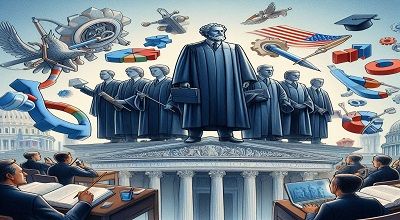Influences of Political Systems
Now here, Influences of Political Systems on Education Planning. Political systems play a crucial role in shaping education planning. In democratic systems, there is often a focus on providing equal opportunities for education to all citizens. Policies may be geared towards promoting inclusivity, and diversity. Ensuring that education is accessible and affordable.
In authoritarian systems, education planning may be more centralized, with a focus on aligning education with the state’s ideology or goals. The curriculum and educational materials may be designed to reflect the values. And priorities of the ruling party, potentially limiting academic freedom.
Additionally, political systems can influence funding for education. Democratic systems may allocate resources based on a commitment to providing quality education for all. While in authoritarian systems, resources may be directed toward specific priorities. Such as technological advancements or ideological indoctrination.
It’s important to note that the relationship between political systems and education planning is complex. And can vary widely depending on the specific context and policies in place.
Key Points Of Influences of Political Systems on Education Planning
Sure, let’s break it down into key points:
Curriculum and Ideology:
- Democratic Systems: Emphasis on a diverse and inclusive curriculum, reflecting a range of perspectives. Academic freedom is often protected.
- Authoritarian Systems: The curriculum may be aligned with the state’s ideology, potentially limiting diverse viewpoints. State control may extend to textbook content and teaching materials.
Access and Equality:
- Democratic Systems: Strive for equal access to education for all citizens. Policies focus on reducing disparities and promoting inclusivity.
- Authoritarian Systems: Access may be controlled or restricted based on factors like political loyalty or socio-economic status.
Decision-Making and Centralization:
- Democratic Systems: Decisions often involve collaboration between various stakeholders, including educators, parents, and policymakers. Decentralized planning may be present.
- Authoritarian Systems: Centralized decision-making, with policies reflecting the goals and priorities of the ruling party. Limited input from diverse perspectives.
Funding Priorities:
- Democratic Systems: Funding directed towards providing quality education for all. Emphasis on teacher training, infrastructure, and student support services.
- Authoritarian Systems: Funding may prioritize specific areas aligned with the state’s goals. Such as technological advancements or ideological initiatives.
Academic Freedom:
- Democratic Systems: Generally, a strong emphasis on academic freedom. Allowing educators to teach and research without undue interference.
- Authoritarian Systems: Academic freedom may be restricted. With limits on what can be taught or researched to align with state ideologies.
Role of Teachers:
- Democratic Systems: Teachers are often viewed as professionals with the autonomy to adapt teaching methods to student needs. Encouraged to foster critical thinking.
- Authoritarian Systems: Teachers may be expected to adhere strictly to the prescribed curriculum. And ideological guidelines, limiting individual innovation.
Long-Term Goals:
- Democratic Systems: Focus on fostering an educated and informed citizenry, promoting civic engagement and critical thinking.
- Authoritarian Systems: Goals may include producing a workforce with specific skills, promoting ideological adherence, or maintaining social control.
Note:
These points highlight the diverse ways in which political systems can shape education planning, reflecting the broader values and priorities of a society.
